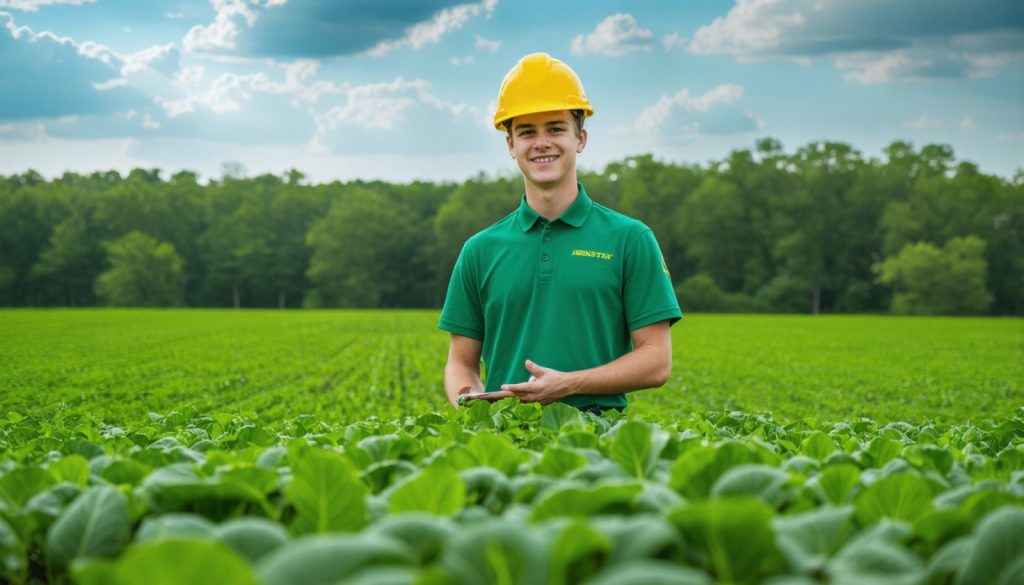
- The Growing AgBiz Ideas symposium at Arkansas Tech University showcased innovative agricultural business plans by senior students.
- Guided by Dr. Syed Meerza, students in the Agriculture Business Management course developed business plans stressing real-world viability, including costs, marketing, and revenue.
- A panel of industry experts, including Nicole Bartlett and Jeff Small, provided critical feedback to enhance these innovative proposals.
- Diverse student projects included concepts like “479 Cattle Auction,” technological integration in “Cattlecopter,” sustainable farming practices in “EcoShroom,” luxury experiences in “Wild Game Grove Hunting Lodge,” and eco-friendly materials with “BioTwine.”
- The Co-Create Innovation Hub offered invaluable mentorship and networking opportunities to further student projects.
- The initiative underscores the potential of classroom projects to evolve into significant agricultural enterprises, emphasizing the dynamic interface between academic learning and practical innovation.
A crisp, energized morning at Arkansas Tech University’s Co-Create Innovation Hub burst into brilliance, as five spirited teams of agriculture students transformed an ordinary day into an extraordinary showcase. Under the meticulous guidance of Dr. Syed Meerza, an assistant professor with a keen eye for innovation, these students embarked on a journey that might redefine their futures and, perhaps, elements of our agricultural landscape.
In this thriving academic ecosystem, the Growing AgBiz Ideas symposium stood as a crucible for burgeoning entrepreneurs. Students in their senior year, enrolled in the Agriculture Business Management course, were tasked with crafting business plans that could withstand the scrutiny of real-world demands. They outlined everything with precision—from start-up and operational costs to marketing strategies and revenue projections.
But this was no mere academic exercise. In the audience sat a panel of experts, each with a seasoned perspective ready to scrutinize every detail. Nicole Bartlett, a loan officer from First State Bank, and Jeff Small, the senior VP for commercial lending, among others, listened intently. Questions flew and feedback flowed, every observation a building block for these young innovators.
The projects were as diverse and ambitious as the students who conceived them. Take, for instance, the bold vision of “479 Cattle Auction” by Lucky Timmerman, Logan Plumlee, and Jace Richard—a blend of traditional cattle auctions spiced with modern logistical flair. Perhaps even more ambitious was “Cattlecopter,” a daring merger of technology and agriculture proposed by Caleb Ham and his team, envisioning drones as shepherds of the sky.
Meanwhile, Ally Snyder and Kay Gilmore took a subtler but no less impactful route with “EcoShroom”; their plan involved sustainable mushroom cultivation, a nod to the mushrooming demand for eco-friendly food sources. As if not to be outdone, MaKayla Goins and her team introduced the “Wild Game Grove Hunting Lodge”, merging luxury with rural allure. Finally, for those with an eye on the biodegradation problem, Gage Looney and his partners pitched “BioTwine”, a potential game-changer in agricultural materials.
The Co-Create Innovation Hub, more than just a venue, offered mentorship and connections, promising to breathe life into these blueprints. As the symposium wrapped up, the students departed with invaluable insights integrated into their plans. These architects of future industry were left with not just critiques, but with commitments to their vision—binding agreements to submit refined, professional-quality business outlines to Meerza by spring’s end.
The grand takeaway here? At Arkansas Tech, students are not merely learning about agriculture and business—they are sartorial pioneers of innovation. The blend of academia and practical insight fosters ideas that might one day evolve into the agricultural cornerstones of tomorrow. It’s a vivid reminder: today’s classroom projects may well be tomorrow’s viable enterprises, changing fields both literal and metaphorical.
Unlocking Potential: How Arkansas Tech University is Shaping the Future of Agriculture Innovation
Innovation in Action at Arkansas Tech University
The vibrant morning at Arkansas Tech University’s Co-Create Innovation Hub illustrated a pivotal moment for senior agriculture students, who are at the cutting edge of agricultural innovation. Under the guidance of Dr. Syed Meerza, these students are not just imagining the future; they are actively crafting it through the “Growing AgBiz Ideas” symposium.
The symposium served as a dynamic platform for agricultural business students to present their meticulously developed business plans, scrutinized by a panel of industry experts. This experience not only provided real-world business exposure but also highlighted potential future shifts in agriculture.
Key Projects and Innovations
1. 479 Cattle Auction: This project by Lucky Timmerman, Logan Plumlee, and Jace Richard marries traditional cattle auctions with advanced logistics, poised to revolutionize the cattle industry by streamlining auction processes and improving accessibility.
2. Cattlecopter: Conceptualized by Caleb Ham and his team, this innovative use of drones for cattle management represents a progressive leap in integrating technology with traditional farming practices, offering more efficient herd management solutions.
3. EcoShroom: Ally Snyder and Kay Gilmore’s venture into sustainable mushroom farming meets the increasing consumer demand for environmentally friendly food sources, reflecting a meaningful shift toward eco-conscious agricultural practices.
4. Wild Game Grove Hunting Lodge: MaKayla Goins and her team’s luxury hunting lodge proposal combines rustic charm with high-end comfort, targeting both the tourism sector and outdoor enthusiasts.
5. BioTwine: Pitched by Gage Looney’s team, this project tackles agricultural waste by offering biodegradable options for twine and other materials, positioning itself as a significant player in the sustainability movement.
Real-World Use Cases & Industry Trends
– Sustainable Agriculture: The emphasis on projects like EcoShroom and BioTwine highlights a broader industry trend towards sustainability and eco-friendly innovations in agriculture.
– Technological Integration: The Cattlecopter’s use of drones exemplifies the increasing role of AI and tech in modern farming, improving efficiency, and livestock management.
– Luxury and Experience: Projects like the Wild Game Grove Hunting Lodge indicate a growing trend in combining traditional industries with tourism and experience-driven businesses.
Actionable Recommendations & Quick Tips
– Explore Sustainable Practices: For those looking to enter agriculture, focus on sustainable and eco-friendly solutions, as consumer demand is increasingly shifting in this direction.
– Leverage Technology: Consider how technology such as drones and AI can solve traditional industry challenges and improve efficiency.
– Diversify Offerings: Combining traditional agricultural ventures with hospitality or tourism can open new revenue streams and attract a broader audience.
Pressing Questions and Answers
– What is the role of educational institutions in fostering innovation? Institutions like Arkansas Tech provide foundational knowledge, mentorship, and industry connections that help students transition from theoretical understanding to real-world applications.
– How are modern agricultural innovations addressing sustainability? By developing projects like BioTwine and EcoShroom, students are creating solutions that reduce environmental impact and promote sustainability.
– Why is the integration of technology crucial for the future of agriculture? Integrating technology such as drones for farming tasks increases efficiency, reduces manual labor, and can lead to greater yields and profit margins.
Insights & Predictions
The future of agriculture is being reshaped by a combination of sustainable practices and technological integration. As educational institutions continue to foster creativity and collaboration among students, we can expect to see a surge in innovative solutions tackling current industry challenges.
For more on agriculture innovation and trends, visit Arkansas Tech University’s website.
These projects and trends from the symposium provide a compelling glimpse into how today’s academic exercises could soon become tomorrow’s real-world solutions, paving the way for new and exciting developments in agriculture.



